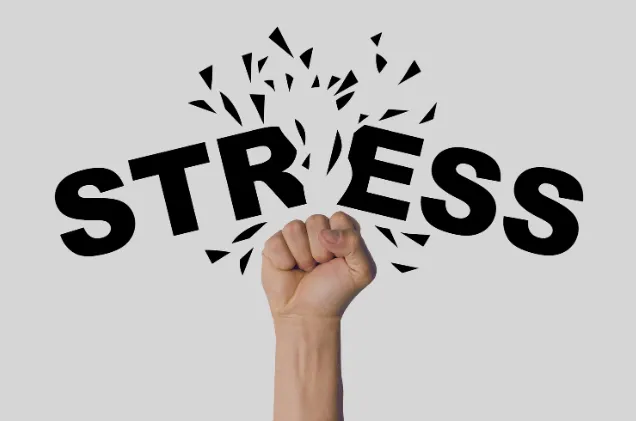Hey there! Welcome back to my blog, where we dive into all things ADHD-related. Today, I want to tackle the topic of stress, anxiety, and overwhelm and how it intersects with ADHD. If you have ADHD, you might have noticed that these feelings hit you harder and more frequently compared to your neurotypical counterparts. Let’s explore why that’s the case and, most importantly, discover some powerful tools to help you find calm and reduce those overwhelming emotions.
Living with ADHD often means having a heightened sensitivity to stress, anxiety, and overwhelm. It’s not that we are more prone to experiencing these emotions, but rather that our brains process and respond to them differently. Here’s a quick rundown of why that happens:

- Difficulty regulating emotions: ADHD and emotional dysregulation often go hand in hand. Our emotional responses can be intense and overwhelming, making it more challenging to cope with everyday stressors.
- Executive functioning challenges: ADHD affects our executive functions, which include skills like planning, prioritizing, and organizing. These struggles can lead to feeling overwhelmed when facing multiple tasks or a busy schedule.
- Hyperfocus and hyperarousal: On the flip side, ADHD brains have the ability to hyperfocus, where we become completely engrossed in a task. However, this hyperfocus can also lead to hyperarousal, causing anxiety when trying to switch gears or multitask.
So, what can you do to manage these feelings of stress, anxiety, and overwhelm? Here are some powerful tools to have in your arsenal:
- Prioritize self-care: Self-care is crucial for managing stress and overwhelm. Make time for activities that bring joy and relaxation, such as reading, taking a warm bubble bath, practicing a hobby, or curling up on the coach with a good book. And remember, self-care is not selfish—it’s an investment in your own well-being.

- Get outside: Nature is a powerful remedy to bust stress, restore calm and improve your mood. So when you need a break, get outside and enjoy nature. How can you encourage more green time? Plan a picnic, hike, or scavenger hunt. Plant a garden in your yard or on your balcony. Fly a kite, bik
- Mindfulness and meditation: Let’s not forget about the power of deep breathing and meditation. When stress comes knocking, take a moment to close your eyes, find a comfortable position, and focus on your breath. Inhale deeply through your nose, counting to four, and exhale slowly through your mouth for a count of four as well. This simple technique can help slow down your heart rate, relax your muscles, and bring a sense of calm to your mind. If you’re craving something more structured, try exploring meditation apps or guided meditation videos that can lead you through soothing exercises. Believe me, a few minutes of deep breathing can work wonders for your mental well-being.

- Regular exercise: Another great way to relieve stress and anxiety is through the power of exercise. Now, don’t worry, I’m not saying you need to run a marathon or become a fitness guru overnight. But incorporating some form of physical activity into your routine can work wonders for your mental health. Whether it’s going for a jog, practicing yoga, or even dancing around your living room like no one’s watching, exercise releases endorphins that boost your mood and help you keep stress at bay. So put on those running shoes or roll out your yoga mat and let the magic happen.
- Creating structure and routine: Establishing a consistent routine can help soothe anxiety and provide a sense of control in your daily life. Set aside specific times for activities, breaks, and self-care.
- Break tasks into manageable chunks: Break down overwhelming tasks into smaller, more manageable steps. This approach can help you stay focused and reduce the feeling of being overwhelmed.
- Utilize planner and organization techniques: Explore various planner systems, calendars, or digital tools to organize your appointments, tasks, and commitments. This can alleviate anxiety about forgetting or missing important deadlines.
- Prioritize self-care: Self-care is crucial for managing stress and overwhelm. Make time for activities that bring joy and relaxation, such as reading, taking a warm bubble bath, practicing a hobby, or curling up on the coach with a good book. And remember, self-care is not selfish—it’s an investment in your own well-being.
- Journaling and reflection: Putting pen to paper can be a therapeutic outlet to express your thoughts, fears, and emotions. Reflecting on your experiences can offer insight and help you navigate overwhelming situations effectively.

- Build a support network: Now, let’s not forget the power of human connection. When stress and anxiety are getting the best of you, reach out to your support system. Call up a friend or schedule an in person or virtual hangout, where you can share your thoughts and feelings. Sometimes, all it takes is a good conversation and some laughter to melt away the stress. And remember, you’re not alone in this—everyone faces stress and anxiety at some point, and you’ll be surprised how talking about it can make you feel better.
- Seek professional help: If feelings of stress, anxiety, and overwhelm persist and impact your daily life, don’t hesitate to reach out to a mental health professional or an ADHD coach for additional support and guidance.
Remember, managing ADHD is a journey, and it’s essential to find what works best for you. These tools are just a starting point, but by implementing them consistently, you can regain a sense of control and find more balance in your life. You’ve got this!
Stay tuned for more ADHD-related content and helpful tips. I’m here to support you every step of the way.

